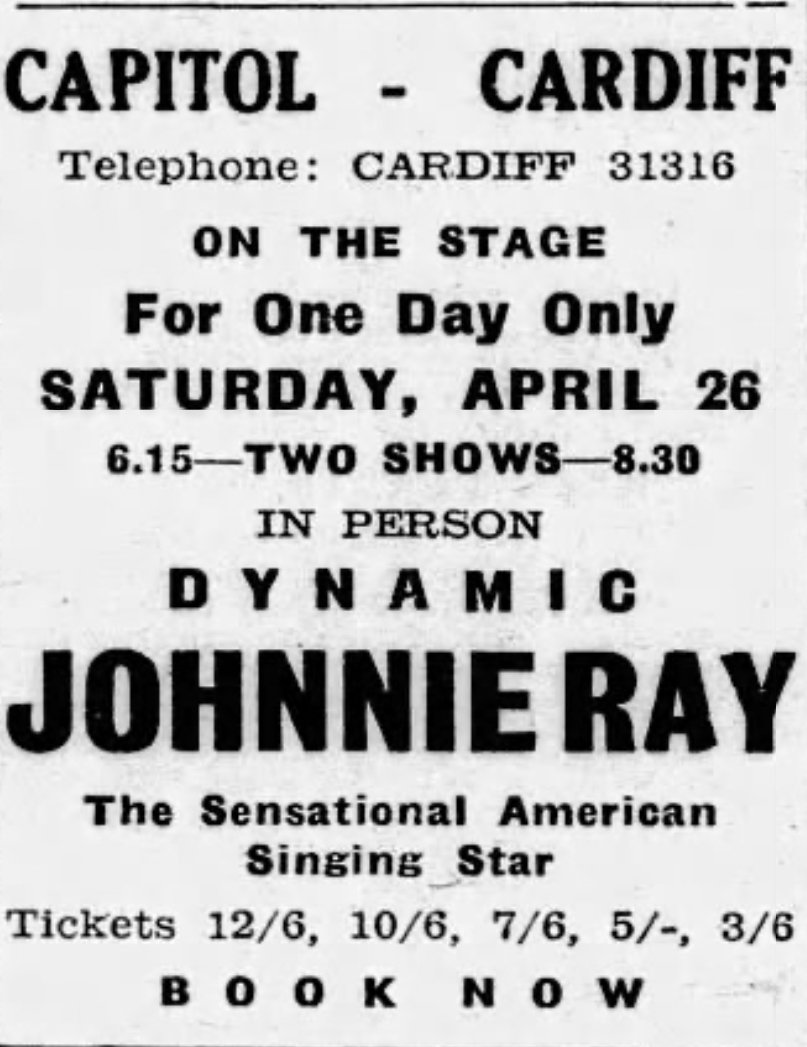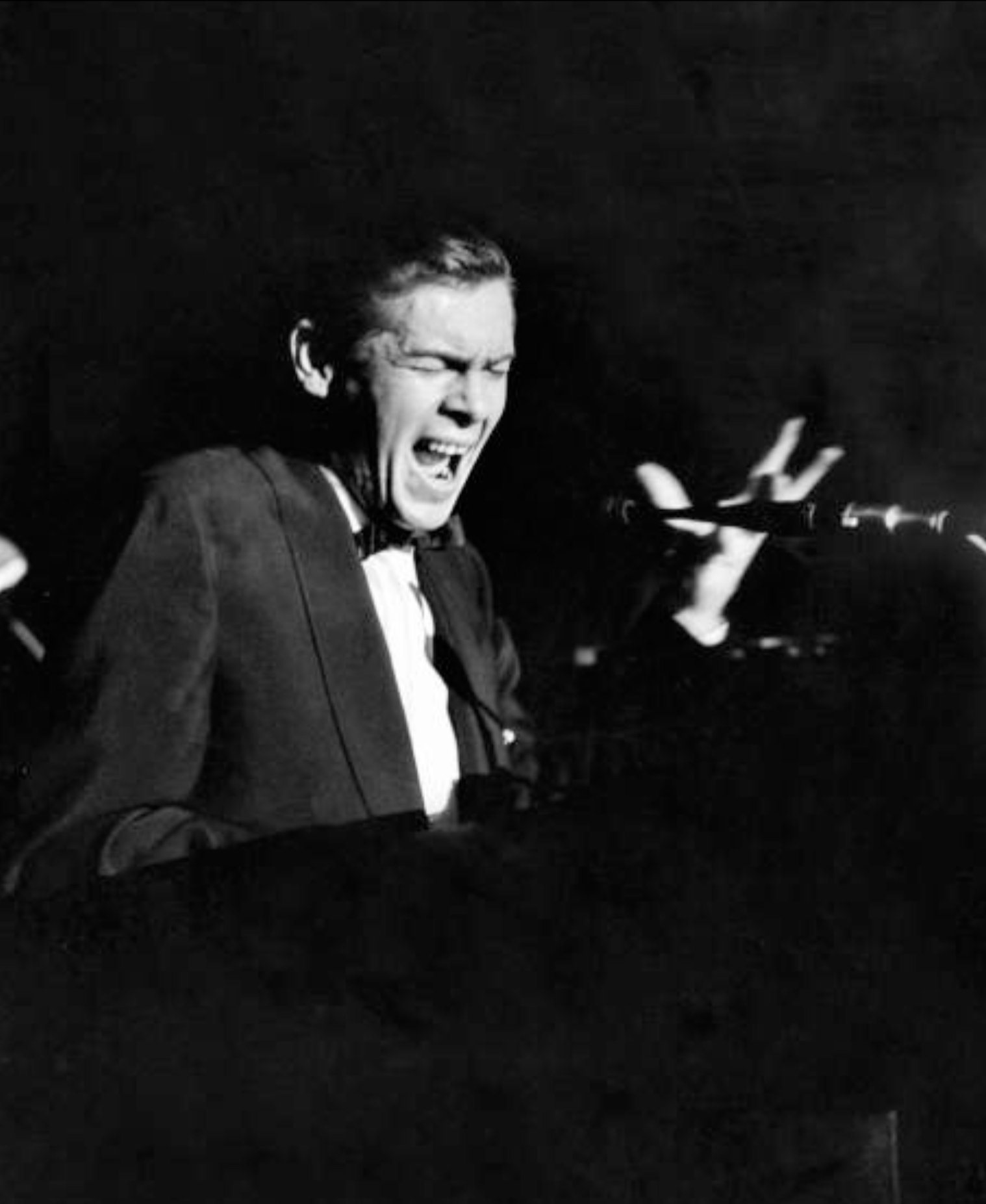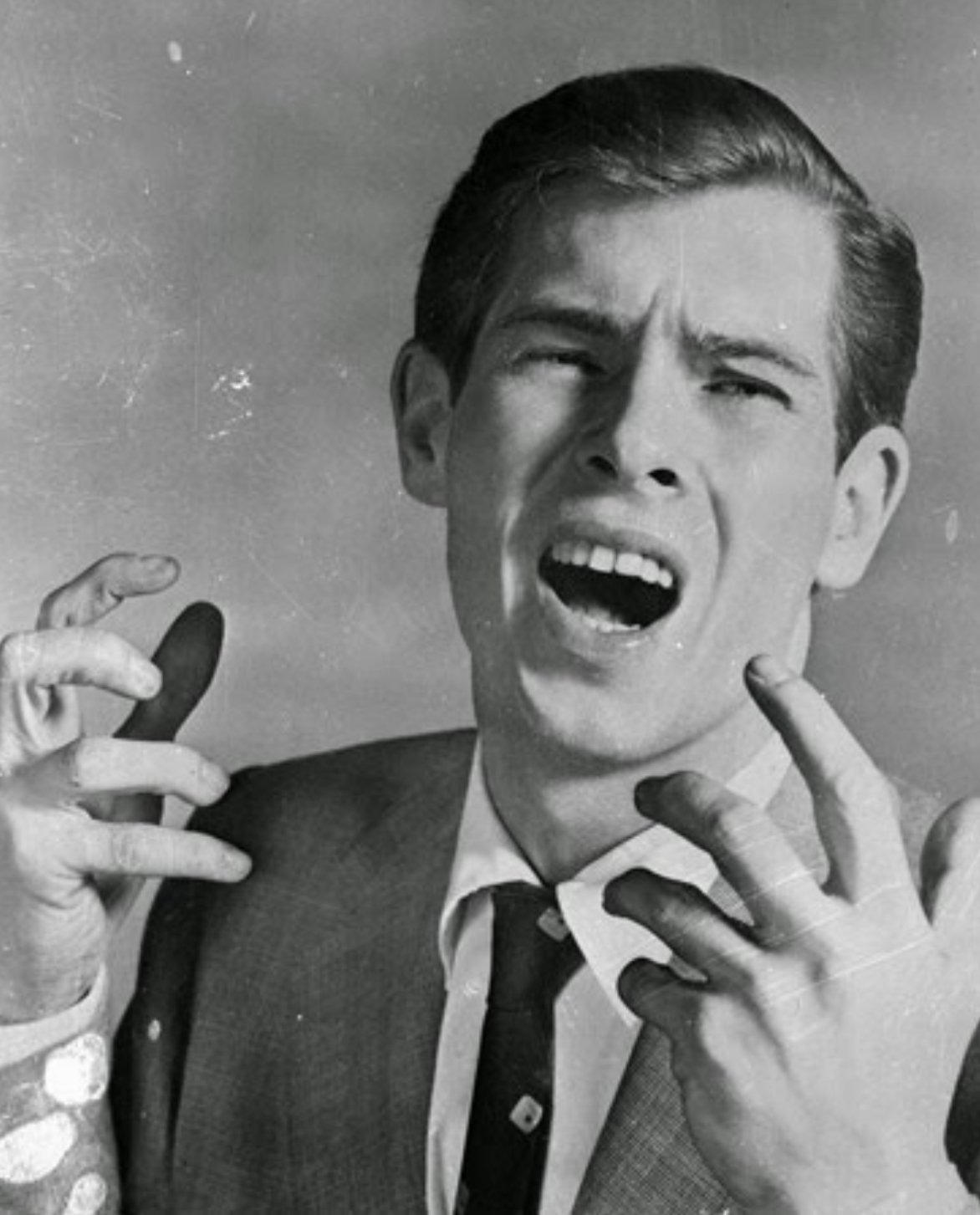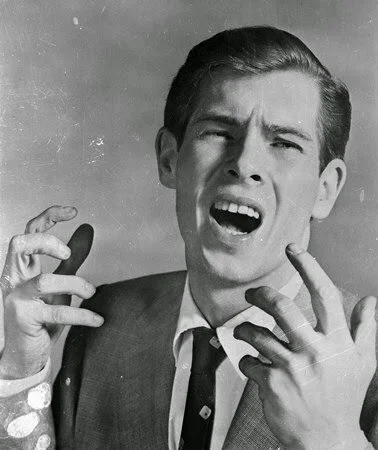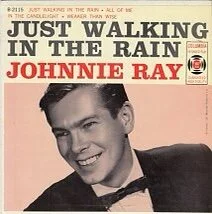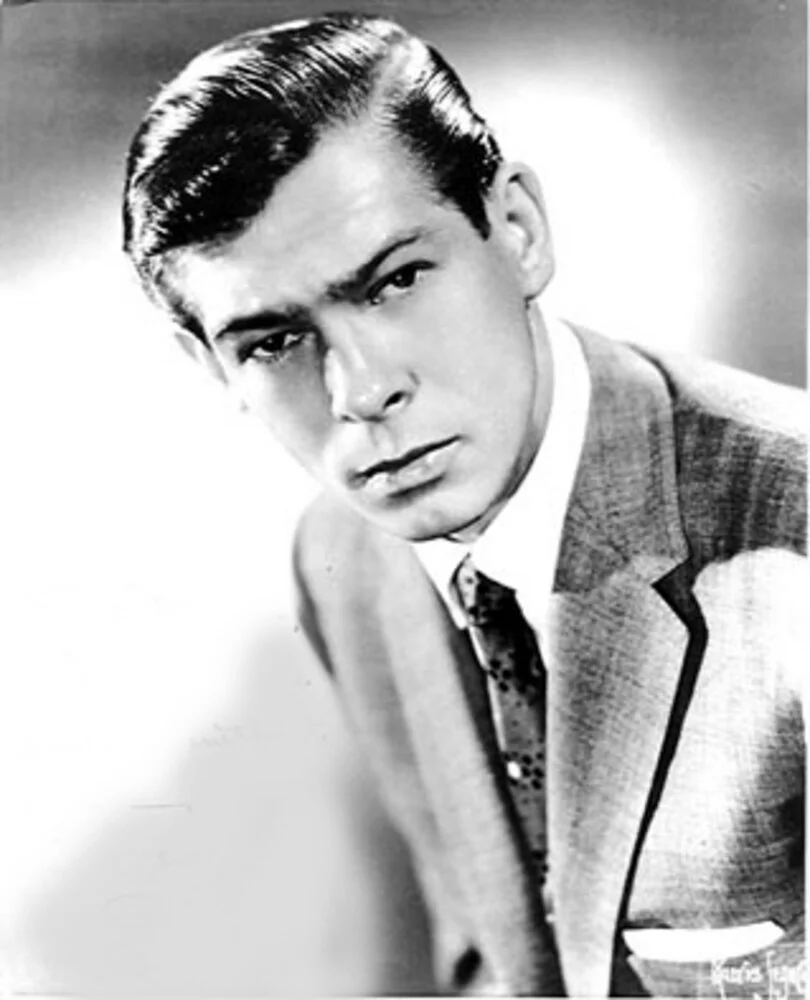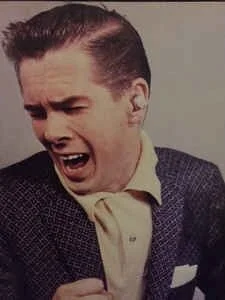Images may be subject to copyright
On this day 26 April 1958, American singer, songwriter, and pianist Johnnie Ray played Cardiff’s Capitol Theatre.
Born and raised in Dallas, Oregon, Ray, who was partially deaf, began singing professionally at age 15 on Portland radio stations. He gained a local following singing at small, predominantly African-American nightclubs in Detroit, where he was discovered in 1949.
In 1951, he signed a contract with Okeh Records, a subsidiary of Columbia Records. On the Billboard charts, he rose quickly from obscurity with the release of his debut album Johnnie Ray (1952), as well as with a 78 rpm single, both of whose sides reached the Billboard magazine's Top Hot 100 chart, "Cry" and "The Little White Cloud That Cried".
In the 1950s, after both sides of the single "Cry"/"The Little White Cloud That Cried" ran their course, more hit songs followed. They included "Please, Mr. Sun", "Such a Night", "Walkin' My Baby Back Home", "A Sinner Am I", and "Yes Tonight Josephine". He scored a number-one hit in the United Kingdom with "Just Walkin' in the Rain" (which he initially disliked) during the Christmas season in 1956. He hit again in 1957 with "You Don't Owe Me a Thing", which reached number 10 on the Billboard charts in the United States.
Though his American popularity was declining in 1957, he remained popular in the United Kingdom, breaking the attendance record at the London Palladium formerly set by fellow Columbia Records artist Frankie Laine. In later years, he retained a loyal fan base overseas, particularly in Australia.



